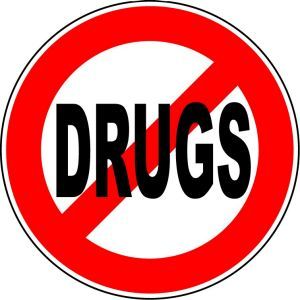 Changes are being made in the way our police departments and prosecutors are handling drug cases in America. Many states and cities across the nation are turning away from harsh penalties for low-level drug offenses and are instead focusing on getting treatment for these individuals. Chicago is no exception. We recently wrote a blog discussing the changes that Chicago has made to lessen penalties for marijuana possession, issuing tickets instead of arresting the offenders. This past week, Police Superintendent Garry McCarthy lead a discussion regarding changing the criminal justice system as a whole, and specifically changing the way Chicago deals with addiction and low-level offenses. Similarly, Rolling Meadows made a change in the way they treat heroin addiction.
Changes are being made in the way our police departments and prosecutors are handling drug cases in America. Many states and cities across the nation are turning away from harsh penalties for low-level drug offenses and are instead focusing on getting treatment for these individuals. Chicago is no exception. We recently wrote a blog discussing the changes that Chicago has made to lessen penalties for marijuana possession, issuing tickets instead of arresting the offenders. This past week, Police Superintendent Garry McCarthy lead a discussion regarding changing the criminal justice system as a whole, and specifically changing the way Chicago deals with addiction and low-level offenses. Similarly, Rolling Meadows made a change in the way they treat heroin addiction.
On October 1st, the nearby suburb of Rolling Meadows initiated a heroin amnesty program after a bad batch of heroin led to several heroin-related overdoses. Under the new program, any resident that has a heroin addiction may come into the police station and turn over their heroin or paraphernalia without being arrested or charged, and will instead be enrolled in a treatment program to help them combat their addiction. Rolling Meadows Police Chief David Scanlan started this program as a way to help individuals who are struggling with heroin addiction receive help and treatment. Anyone who enters the the police station will be entered into the Heroin Outreach Program at no cost to them. Chief Scanlan believes that incarcerating people with drug addictions not only doesn’t help them, but costs money to the taxpayers who foot the bill for housing these individuals in jail cells. The amnesty program gives heroin users a “second chance” and allows them to seek treatment without having to face the consequences of prosecution. The program will be paid for using money seized from drug investigations. This June, Gloucester, Massachusetts, located outside of Boston, initiated a similar program which they referred to as the “angel program,” allowing their citizens the same amnesty for heroin use. Both programs aim to curb heroin overdoses and subsequent deaths from these overdoes. This program comes at a time where there is a strong shift away from penalizing persons who suffer from addiction to a focus on treatment and rehabilitation of these individuals.
This shift means that the way the criminal justice system handles low-level drug offenders will be a lot less harsh, with a focus on rehabilitation rather than punishment and incarceration. Last week, Law Enforcement Leaders to Reduce Crime and Incarceration, a group led by Chicago Police Superintendent Garry McCarthy, introduced goals that they want to create throughout the city and, ultimately, the nation. These points include a focus on rehabilitation and alternatives to arrest and prosecution for individuals with drug addiction issues and mental health issues. These changes changes would make most of the cases that are now felony drug cases into misdemeanors and give prosecutors other options regarding how they treat the offenders. President Obama also spoke in West Virginia this week and addressed the issue of addiction, stating that there needs to be a shift away from the “war on drugs” to a focus on treating addiction and underlying issues. Many of the laws regarding drug offenses carry mandatory minimums, and with McCarthy’s proposed changes would come a decrease in the amount of low-level offenders in prisons, reserving prison for high-level and violent and violent offenders.
Both the recent introduction of the heroin amnesty program in Rolling Meadows and Superintendent McCarthy’s focus on rehabilitation show a definite change in the way that drug offenses will be handled across the nation from now on. President Obama will join McCarthy and other high-ranking police officials from across the country today for a discussion regarding these issues and how to make policing more “just and effective.”
If you have any questions regarding any of these programs, or if you if you have been implicated in a criminal investigation, don’t hesitate to contact us here at Lauralaw and one of our skilled attorneys will be happy to assist you.

